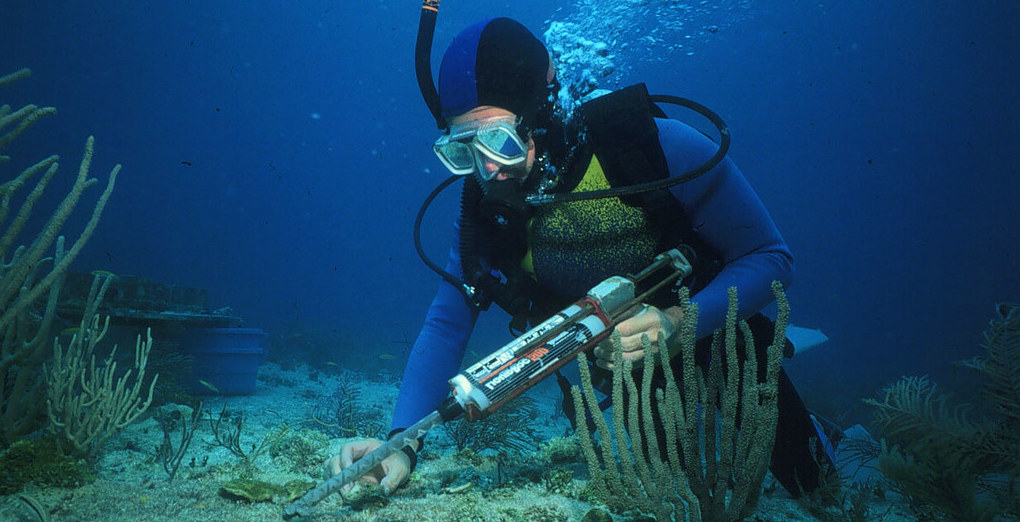Below is a table that shows a range of marine biology-related positions and their estimated salaries, based on various non-governmental data sources as of September 2024. It’s important to note that these figures are estimates and may vary depending on factors such as location, specific employer, and individual qualifications.
| Rank | Position Title | National Average Salary |
|---|---|---|
| 1 | Director of Biological Research (aka Biologist V) | $126,996 |
| 2 | Marine Biology Professor | $120,000 |
| 3 | Project Lead Biologist (aka Biologist IV) | $116,927 |
| 4 | Senior Marine Biologist | $103,957 |
| 5 | Systems Analyst | $93,000 |
It’s important to note that actual salaries can vary significantly based on several factors, including geographic location, years of experience, level of education, and company size. Continue reading to learn more about these various roles.
Director of Biological Research (aka Biologist V)
A Director of Biological Research, also known as Biologist V, is a senior-level professional who oversees advanced, complex technical projects in biological research, often focusing on marine ecosystems. This role requires extensive experience and specialized knowledge in areas such as marine ecology, oceanography, or aquatic biology, and involves providing leadership and strategic direction for research teams.
Primary duties:
- Developing and overseeing complex research projects
- Managing and mentoring research teams
- Ensuring compliance with regulatory standards and best practices
- Communicating research findings to stakeholders and the scientific community
Experience required:
- Education: Ph.D. in Biology, Marine Biology, or a related field
- Work experience: 10+ years of related experience in biological research, with a focus on marine ecosystems
- Skills: Advanced knowledge of marine biology concepts, strong leadership abilities, excellent communication skills, and proficiency in data analysis and research methodologies
Resume tips:
- Highlight specific marine biology research projects you’ve led, emphasizing their complexity and impact on the field.
- Showcase your ability to secure funding and manage large-scale research budgets, as these are crucial aspects of the Director role.
Marine Biology Professor
A Marine Biology Professor is an academic expert who educates students and conducts research in the field of marine biology at a university or college. They specialize in various aspects of marine life and ecosystems, such as marine ecology (studying interactions between organisms and their environment), biological oceanography (examining the biology of marine systems in relation to physical and chemical processes), or marine conservation biology (focusing on protecting marine species and habitats).
Primary duties:
- Developing and teaching undergraduate and graduate courses in marine biology
- Conducting and publishing original research in peer-reviewed journals
- Mentoring students and supervising research projects
- Securing research grants and managing research budgets
Experience required:
- Education: Ph.D. in Marine Biology or a closely related field
- Work experience: Post-doctoral research and teaching experience, typically 3-5 years
- Skills: Strong research methodology, data analysis, scientific writing, and public speaking abilities
Resume tips:
- Highlight any interdisciplinary research or collaborations that demonstrate your ability to work across different areas of marine biology.
- Showcase your ability to engage with the public through outreach activities or science communication, as this is increasingly valued in academic positions.
Project Lead Biologist (aka Biologist IV)
A Project Lead Biologist, also known as Biologist IV, is a senior-level professional who manages complex biological research projects, often focusing on marine ecosystems and their conservation. This role involves coordinating research teams, overseeing project implementation, and ensuring that scientific objectives are met within the constraints of time and budget. In marine biology, this position might specialize in areas such as marine ecology, oceanography, or fisheries management.
Primary duties:
- Designing and implementing marine research projects
- Coordinating and supervising research teams
- Analyzing and interpreting complex biological data
- Preparing detailed reports and presentations for stakeholders
Experience required:
- Education: Ph.D. in Biology, Marine Biology, or a related field
- Work experience: 7+ years of experience in biological research, with a focus on marine ecosystems
- Skills: Project management, data analysis, scientific writing, and leadership abilities
Resume tips:
- Emphasize your experience in managing multi-disciplinary teams and collaborating with various stakeholders in marine research projects.
- Highlight your track record in securing research funding and managing project budgets, as these are crucial skills for a Project Lead Biologist.
Senior Marine Biologist
A Senior Marine Biologist is an experienced professional who leads complex research projects and initiatives focused on marine ecosystems and organisms. This role often involves specializing in areas such as marine ecology (studying interactions between marine organisms and their environment), biological oceanography (examining how physical and chemical processes affect marine life), or marine conservation biology (developing strategies to protect marine species and habitats).
Primary duties:
- Leading and designing large-scale marine research projects
- Analyzing complex data sets and developing new theories or models
- Mentoring junior researchers and coordinating research teams
- Securing funding through grant writing and managing research budgets
Experience required:
- Education: Ph.D. in Marine Biology or a related field
- Work experience: 10+ years of progressive experience in marine biology research
- Skills: Advanced data analysis, project management, scientific writing, and leadership abilities
Resume tips:
- Highlight any patents, innovations, or significant discoveries you’ve made in the field of marine biology to demonstrate your expertise and impact.
- Showcase your ability to work across different marine environments (e.g., coastal, deep-sea, tropical) to demonstrate versatility and breadth of experience.
Systems Analyst
A Systems Analyst in the context of marine biology is a professional who designs and implements computer systems and software solutions to support marine research and data management. This role bridges the gap between marine biology and information technology, focusing on areas such as bioinformatics (analyzing biological data), ecological modeling (simulating marine ecosystems), or oceanographic data systems (managing and processing large-scale ocean data).
Primary duties:
- Developing and maintaining database systems for marine biological data
- Creating software tools for data analysis and visualization of marine ecosystems
- Implementing and managing geographic information systems (GIS) for marine spatial analysis
- Collaborating with marine biologists to design custom software solutions for research projects
Experience required:
- Education: Bachelor’s or Master’s degree in Computer Science, Information Systems, or a related field, with coursework or additional qualification in Marine Biology or Environmental Science
- Work experience: 3-5 years of experience in systems analysis or software development, preferably in a scientific or research environment
- Skills: Proficiency in programming languages (e.g., Python, R), database management, GIS software, and strong analytical and problem-solving abilities
Resume tips:
- Highlight any interdisciplinary projects that demonstrate your ability to apply IT solutions to marine biology challenges.
- Showcase your experience with specific marine biology software tools or data types, such as oceanographic sensors or genetic sequencing data.




